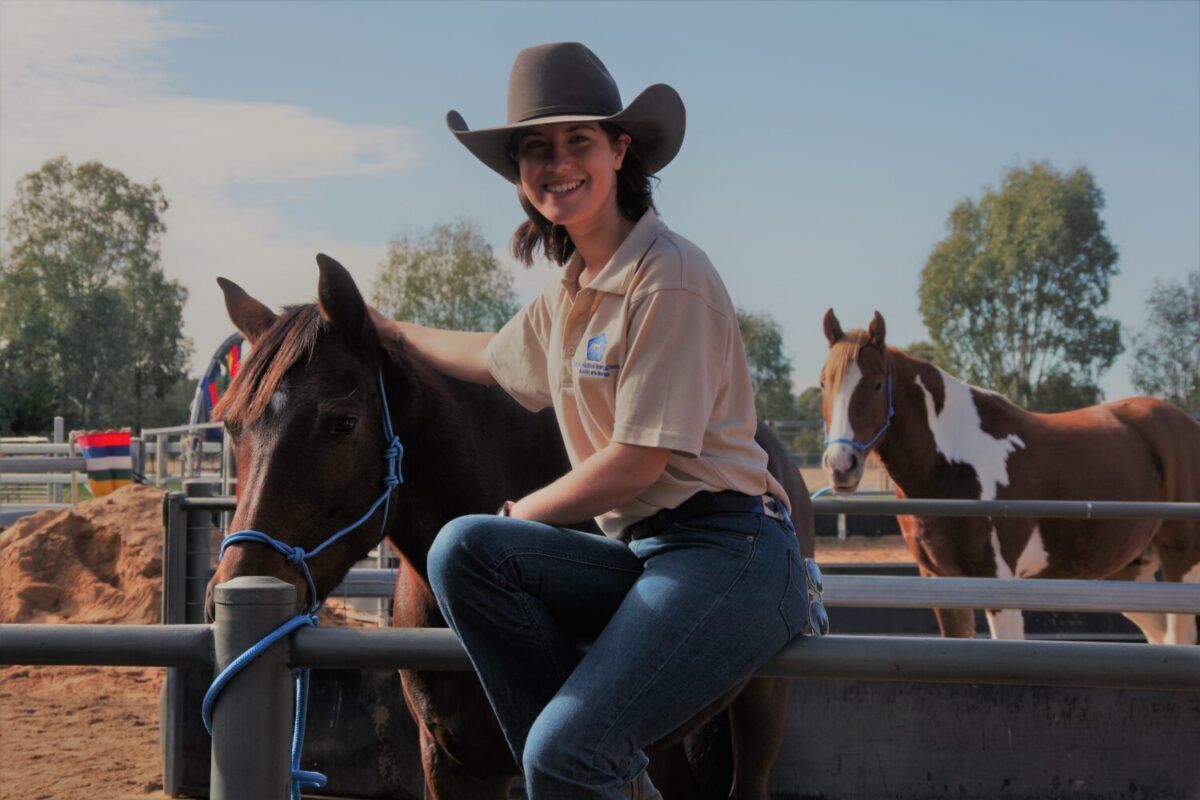
Manilla’s Brooke Thrupp only started her Equine Assisted Mental Health business six months ago, but already has a list of clients to take her well into the next six months.
The 22-year-old, who completed her Bachelor of Psychological Science late last year, absolutely loves her chosen profession where she can help people with a specific disability or mental health issue come to terms with their afflictions and control or cast them off via therapy with the humble horse.
“The horses are my co-therapists,” Brooke said.
“I work with a lot of NDIS (National Disability Insurance Scheme) managers who work out what individuals can benefit best from the therapy in people from four years and upwards. It basically depends on what the client wishes to achieve in themselves. Each individual can assess their own personal goals, then over a 10-week period they can progress through simple stages of ground work with the horses. A lot of focus too is on non-verbal communication – many clients don’t know how to communicate verbally. Horses will help with that. A horse can tell you more about yourself than you can tell yourself, and they don’t lie to you and this is why they can see you better than anyone.”
Brooke said that, in the confined space of a round yard, horses can mirror image every bit of an individual’s energy.
“A client one day could be extremely anxious, be shaking or have trouble speaking, so they can go in and try to get the horse to work around the yard. There they’ll have to settle themselves to be able to settle the horse, basically so they can see themselves through the horse. If they see the horse do something they don’t like, then they have to change something in themselves to change the horse.”
Brooke admits to having suffered with general anxiety herself.
“Doing this as a job has helped me all round in life, and seeing others benefit so much from it, really helps me. I’ve always been interested in psychology and mental health. At 14, I attended some Tony Ernst (horse psychologist and motivational speaker) clinics which gave me my first insight into equine therapy. I was amazed at how he could bring in juvenile justice kids to work with the horses, and how well those kids responded to the therapy.”
After she finished school, Brooke commenced her psychological science degree, but then halfway through, realized that she didn’t really want to sit behind a desk in an office, so made up her mind to travel to America where this sort of treatment is well known.
“But I couldn’t go because of Covid. And at that stage, I didn’t realize I could make a career of it, then I looked further into it and learned that I actually could, but needed to finish my degree first. I did that online (due to Covid) back in October.”
Brooke, who attributes gaining the foundations of horsemanship through the ranks of Manilla Pony Club with her siblings Taylor and Bella, loves what she can achieve with her Equine Assisted Mental Health business. And work doesn’t stop when she closes the Meldorn Lane, Hallsville stable doors each day. She goes home and helps partner Paxton Pulford work up to 10 horses.
“Paxton and I live and breathe horses – most weekends we’ll go off to a campdraft, cutting show or cowhorse competition,” Brooke said.
By Vinnie Todd


